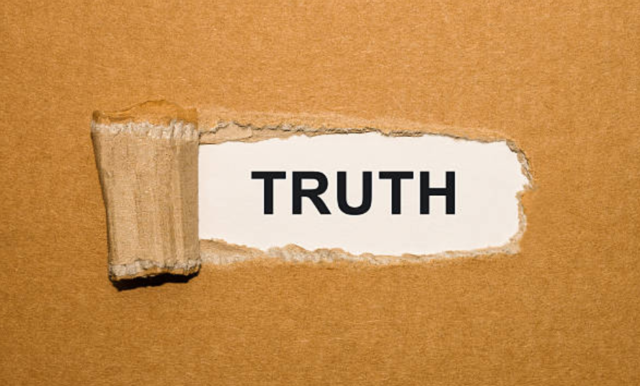
To Conceal or Disclose By Alec Hill

Conceal or Disclose: When Keeping a Secret Can Be Good or Bad
It takes wisdom to discern the right time to conceal or disclose sensitive information. When I became InterVarsity’s president, my intent was to be fully transparent. No secrets. But overtime, I began to rethink my approach. I came to see that some secrets were necessary.
Unlike lying, secrecy is a morally neutral concept. Ecclesiastes aptly captures this tension: “There is a time to be silent and a time to speak.” Likewise Jesus promoted both full disclosure (“what is whispered in your ear, proclaim from the roofs”) and silent confidentiality (warning a healed leper “not to tell anyone”).
How are we to discern when to be tight-lipped and when to share openly? A few guidelines.
Duty to Keep Confidences
Tentative plans that have not yet been finalized are generally best kept to a small circle of those who need to know. For example, I recall making a decision to reallocate funds to a mission-critical area. While positive for one team, it would lead to budget cuts for another. As details were being refined, I had to daily greet the soon-to-be harmed staff. But disclosing the decision prematurely would have caused confusion and harmed our mission.
Likewise, information shared “in confidence” should be honored. Imagine an office mate who privately shares his deep self-doubt with you. Of course, you are obligated not to blab about it to others. Why? Because your willingness to receive the information has created a covenant of trust.
Other types of data such as donor lists, HR files, financial data, marketing plans, and hiring processes are also understood to be secrets. Indeed, certain professions (e.g. counselors, attorneys, and accountants) require a professional pledge of confidentiality.
And finally, information that unnecessarily casts others in a bad light should be withheld. Fomenting gossip is never a good thing.
Duty to Disclose
But there are times when keeping secrets is just plain wrong. When serious harm or injustice may ensue, hidden information should be shared.
Perhaps the most egregious example of a bad secret is hiding the faults of an abusive leader – in essence saying, “let’s protect our own by keeping this quiet.” By doing so, past victims suffer re-injury, new ones are created, and the community’s moral core is eroded.
Likewise, concealed information should be made available when one’s position makes disclosure expected. For example, trustees should share potential conflicts of interest, development staff should be clear with donors about overhead costs, and supervisors should share critical budgetary data with their peers.
Gray Areas
But sometimes the line between confidentiality and disclosure is blurred. In such situations, discernment is needed. Imagine an old friend contacting you about one of your former staff members. She asks: “should I hire him?” Assume that (a) he performed very poorly for you and (b) your HR department frowns on “full disclosure” for fear of being sued. What level of information ought you share?
Or consider the following scenarios. What should you do if you discover that your supervisor – contrary to explicit policy – is collecting a full second salary from another employer? Or his resume exaggerated his job qualifications? Or that he’s having an affair with another staff member?
These are complex matters. Holding toxic secrets can burn a hole in our soul. For our own well-being, we may need to see a counselor, talk with an attorney, confide in our spouse, or vent with a (very) trusted friend.
In Matthew 18, Jesus laid out the normal process for confronting a fellow believer. We are first to go to the offending party in private. But if that person is our boss, this step may backfire. Given the power dynamic involved, he may cover up the sin and muzzle the messenger.
Savvy ministries establish processes for staff to report bad behavior to HR or an ombudsman(a trusted senior leader who reports directly to the executive director). In this manner, poor conducted is confronted and internal whistleblowers are afforded protection.
Final thoughts
Sometimes it is clear which confidences should be concealed and which should be disclosed. In other circumstances, however, the path forward is far from obvious. Depending on context, motive, and role, maintaining a secret may be either a virtue or a vice.
Praying diligently, journaling, and seeking wisdom from others will hopefully illumine the best course of action in morally ambiguous situations.
####
Alec Hill is President Emeritus of InterVarsity Christian Fellowship. This essay is based on his book, Just Business: Christian Ethics in the Marketplace, 3rd Edition.

The Outcomes Conference 2022 begins on April 26 in Louisville, Kentucky. Tom Lin, the current CEO of InterVarsity Fellowship takes the General Session stage as the opening keynote. If you’ve not secured your registration –
There is still time.

What is Christian Leadership Alliance?
Christian Leadership Alliance equips and unites leaders to transform the world for Christ. We are the leaders of Christ-centered organizations who are dedicated to faithful stewardship for greater kingdom impact.
Sign up for FREE blog updates.
Upcoming Events
Check back later!


